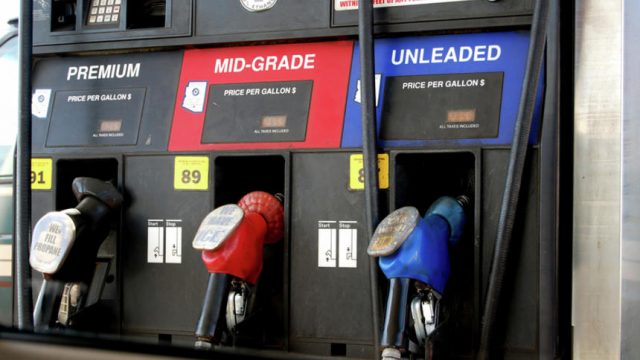It’s Time to Raise the Gas Tax

It’s not often you’ll hear me argue in favor of raising taxes, but today’s editorial in the Grand Forks Herald makes a compelling case for raising the tax on fuel.
“Since 1993, the motor vehicle gas tax has been stuck at 18.4 cents per gallon,” the paper opines. “That’s good when we stop at the local C-store to fill up on gas, but it hasn’t necessarily been good to American roads, bridges and infrastructure.”
I agree, all the more so because of this recent report from my colleague John Hageman:
Fifteen percent of the 4,400 bridges in North Dakota are “structurally deficient,” which is seventh-highest in the country, according to a February report from the American Road and Transportation Builders Association. Minnesota has the 35th highest percentage of structurally deficient bridges.
“Structurally deficient,” doesn’t necessarily mean the bridge is unsafe, transportation officials said. But the nearly 56,000 American bridges in that category show “state and local transportation departments haven’t been provided the resources to keep pace with the nation’s bridge needs,” ARTBA Chief Economist Alison Premo Black said earlier this year.
A Federal Highway Administration spokesman said they now use a three-tier standard instead of the structurally deficient measure. Under that terminology, more than 11 percent of North Dakota’s bridges are in “poor” condition, while almost 53 percent are in “good” condition and the remaining 36 percent are in “fair” condition.
Our state has to get caught up on infrastructure maintenance. Failing to reverse this trend will only mean creakier infrastructure down the road, and an even more expensive problem to fix.
But doing that takes money.
The best way to raise that money is through the tax on gasoline. As the Herald editorial notes, even just a nickle increase in the tax on fuel could raise billions annually at the national level.
You may be wondering why a conservative with a preference for limited government is in favor of a tax hike. It’s an easy case to make.
For one thing, things like roads and bridges are almost universally across the political divides as a legitimate function of government. There are very few things, in the minds of most of the public, that is more central to the government’s role in our lives.
For another, the fuel tax acts as a sort of user fee for the roads. The more fuel you buy to drive on the roads the more tax you pay. Tying the cost of a thing as closely as possible to the people using the thing is a deeply conservative principle. The tax on gasoline is a pretty good way to accomplish that goal.
The problem is that the tax on gasoline is a political hot potato. The price of gas is extremely visible to consumers, and when it goes up they get angry. All the more so when the price hikes are the result of public policy as opposed to the vagaries of the marketplace.
But the gas tax is the best way to fund roads and bridges, something pretty much everyone agrees is something the government should be doing, and right now the roads and bridges need more money. So the gas tax must go up. Definitely at the federal level, where it hasn’t been raised since the early 1990’s, and perhaps at the state level too.




